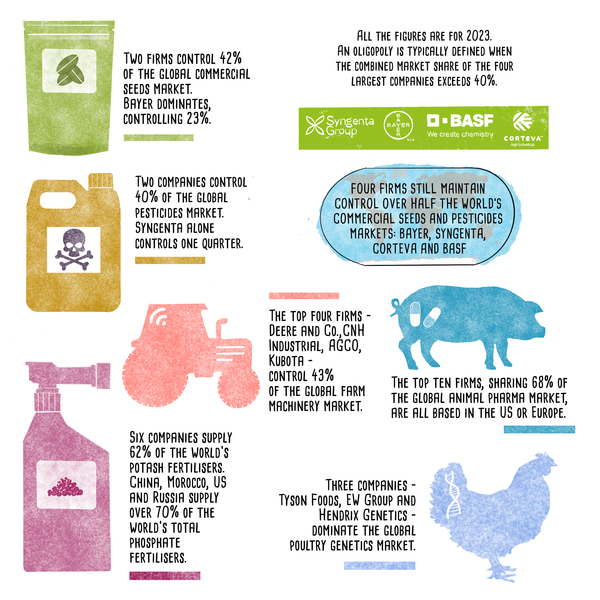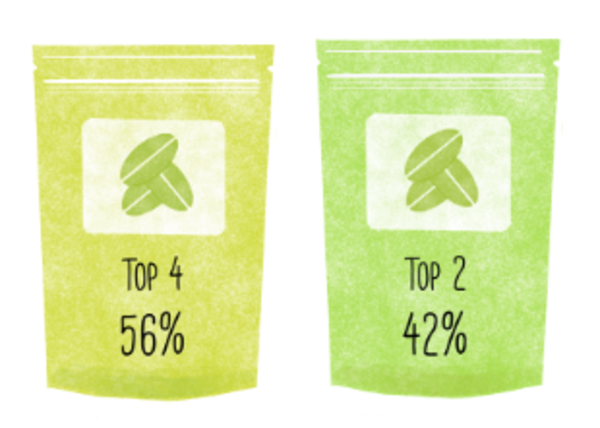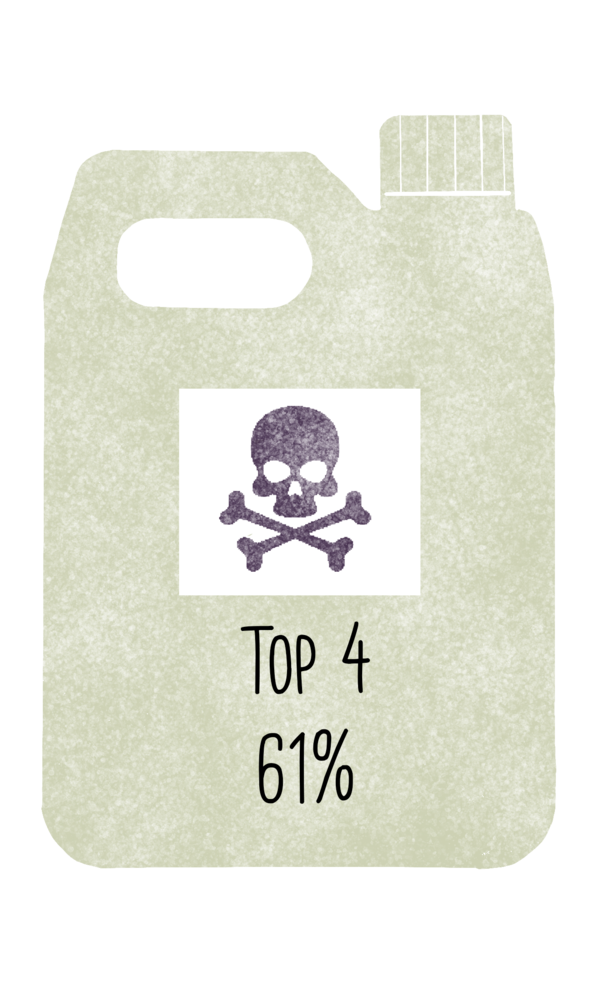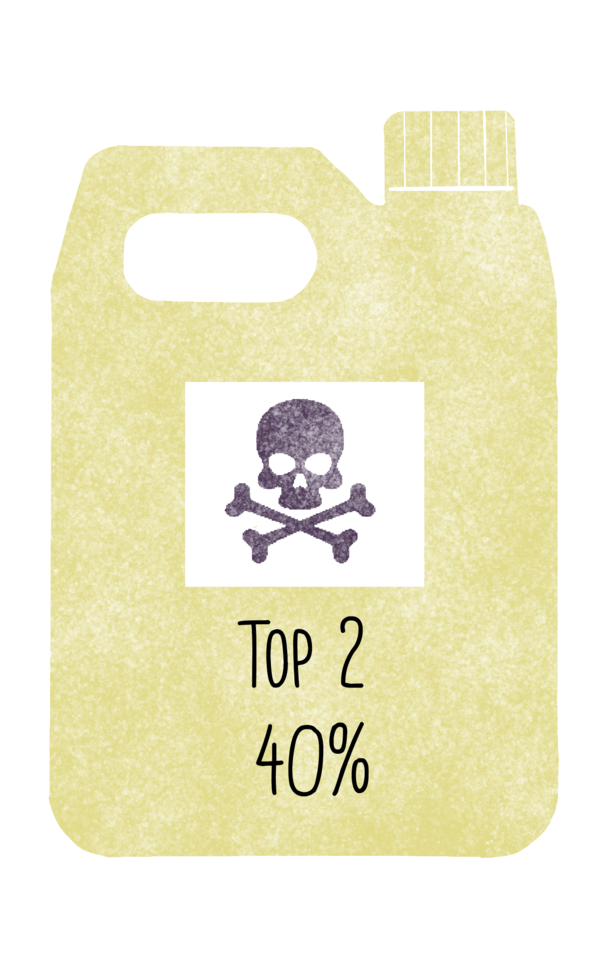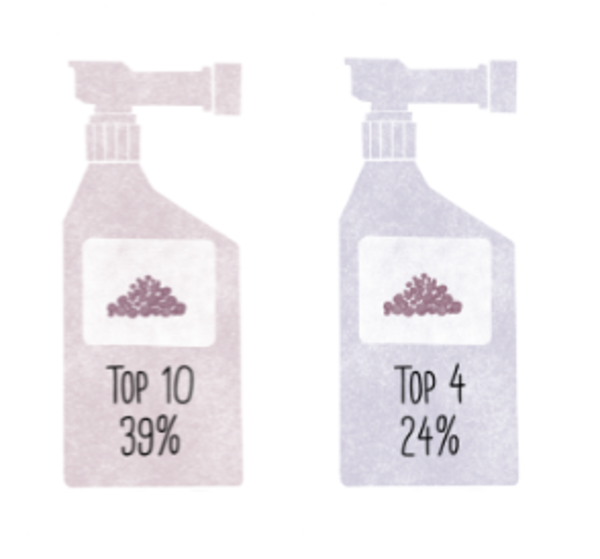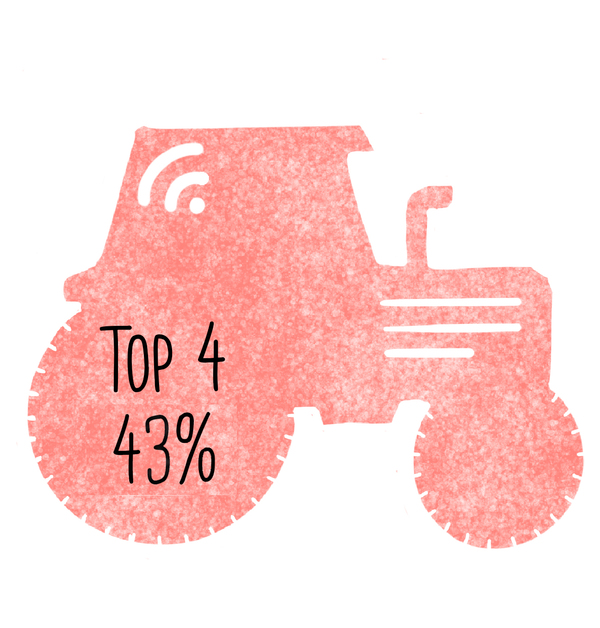SPECIAL REPORTS AND PROJECTS
Coalition for Rainforest Nations announces sale of 6,106 REDD credits from Papua New Guinea to Blackstone Energy Services
Published
5 years agoon
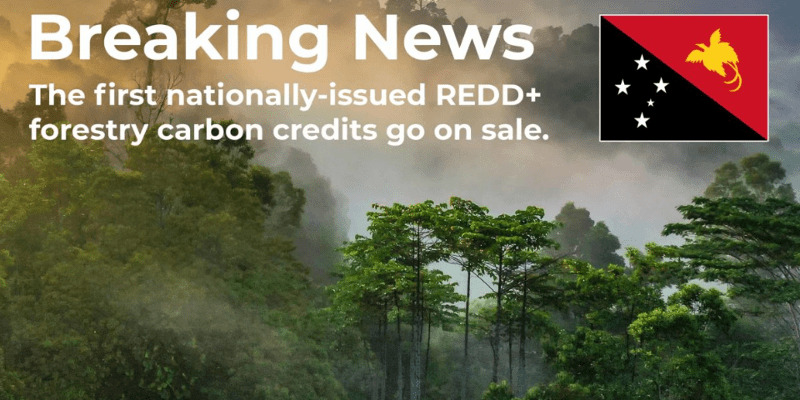
On 29 March 2021, REDD-Monitor wrote about a REDD deal that Kevin Conrad, the Executive Director of the Coalition for Rainforest Nations, signed with Papua New Guinea. Conrad claims the deal will mark “the very first time that (carbon) credits that have been approved by the UNFCCC are being marketed to an open forum to our consumers”. Conrad’s REDD deal was signed on 17 March 2021.
The Papua New Guinea newspaper, the Post Courier reported Conrad as saying that,
“Once we get everything signed up we are going to do a transaction next week, probably just a small one, about US$10,000, just to show and announce that the system is up, and all consumers need to show a transaction to bring other people in.
“We have a company in Canada called the Blackstone Energy, who will be the first company to buy from PNG and their idea is just to get the game started.”
This is a top down REDD deal, with little or no transparency. No process of free, prior and informed consent was carried out before Conrad signed the REDD deal with Wera Mori, PNG’s Minister for Environment, Conservation and Climate Change, and Ruel Yamuna, Managing Director of the Climate Change Development Authority.
Where the money from the carbon credit sales will end up is far from clear. PNG has not yet produced a REDD benefit sharing agreement.
A two-year-old “new report”
On 30 March 2021, the Coalition for Rainforest Nations put out a press release under the headline, “Papua New Guinea Slows Rainforest Deforestation after a Decade, According to New UNFCCC Report”.
The “New UNFCCC Report” is a report published by Papua New Guinea’s Climate Change and Development Authority and submitted to the UNFCCC.
The Climate Change and Development Authority’s report is Papua New Guinea’s First Biennial Update Report to the UNFCCC. It is dated December 2018.
The Biennial Update Report states that PNG achieved REDD+ results in 2014 and 2015 of 9,003,314 tCO2e. But in both 2014 and 2015, PNG emitted almost 40 million tCO2e from deforestation and forest degradation. The country can only claim REDD+ results because PNG, with the help of the FAO, created a Forest Reference Level that increases every year. As long as PNG’s forest destruction remains under the Forest Reference Level, PNG can continue to destroy its forests and claim millions of carbon credits from “REDD+ results”.
Meanwhile, of course, governments have not yet completed negotiations at the UNFCCC on Article 6 of the Paris Agreement. Article 6 involves the rules about creating a new carbon trading mechanism.
On 9 April 2021, REDD-Monitor received the following message from Mark Grundy of the Coalition for Rainforest Nations:
Subject: [REDD-Monitor] Contact
Name: Mark Grundy
Email: mark@cfrn.org
Website: https://redd-monitor.org/
Comment: Dear Chris,
Please correct your article about Blackstone’s purchase of nationally-issued REDD+ forestry carbon credits. The transaction was for 6,100 credits
You can view the deal on CFRN.org
Best
Mark
Sure enough, a Coalition for Rainforest Nations press release dated 8 April 2021 announces that Blackstone Energy Services has bought 6,106 carbon credits from Papua New Guinea.
Here are the Coalition for Rainforest Nations’ two recent press releases (neither of which mentions the ongoing negotiations about Article 6 of the Paris Agreement):
News: Papua New Guinea Slows Rainforest Deforestation after a Decade, According to New UNFCCC Report
Nine million UNFCCC-verified, forestry carbon credits issued for sale by sovereign government.
March 30, 2021, Port Moresby, Papua New Guinea
Papua New Guinea’s rainforest conservation efforts successfully slowed the pace of deforestation in 2014-2015, after bringing annual deforestation levels down to an annual average of 0.5% over a thirteen-year period, according to a report published by United Nations Framework Convention on Climate Change (UNFCCC). As a result of these efforts, UNFCCC verified 9 million metric tonnes (mt) of carbon reductions for this period. The results were posted on UNFCCC REDD+ Information Hub along with four other prerequisites to UNFCCC REDD+ verification:
- National REDD+ Strategy
- National Forest Reference Level
- National Forest Monitoring System
- Safeguards Information Summary.
Highlights:
- Deforestation: Between 2000-2013, Papua New Guinea saw an average loss of 0.5% of its national rainforest annually or 197,000 hectares of forest. The highest annual deforestation figures came in 2013 with a loss of 39,676 hectares. Loss was primarily due to conversion of forests to croplands for both non-commercial agricultural needs of its population (63%) as well as commercial agriculture (30%).
- Degradation of remaining rainforests, primarily for commercial logging was also a major concern. Peaking in 2012 with 240,000 hectares, government action led to steadily declining degradation from 2013 onwards. 2014 and 2015 showed a marked decline in deforestation in both drivers.
- Reforestation and forest rehabilitation activities: Conversely, efforts to enhance forest cover through reforestation and forest rehabilitation activities were limited, despite ambitious goals set out within Papua New Guinea’s Vision 2050 to establish 800,000 hectares of forest plantation by the middle of this century.
“These results are a testament to over two decades of national action and leadership – and are a fitting and timely tribute to the late Sir Michael Somare who pioneered global rainforest conservation. The data from 2014-2015 clearly show that Papua New Guinea has now turned a corner in our battle to stop deforestation,” said, Ruel Yamuna, Managing Director of the Climate Change and Development Authority.
Papua New Guinea’s 9 million mt of carbon reductions will become the first nationally issued REDD+ forestry carbon credits to go on sale to corporations and consumers. This comes after a decade of international negotiation to establish Reducing Emissions from Deforestation and Degradation and the role of conservation, sustainable management of forests and enhancement of forest carbon stocks in developing countries (REDD+) as a global conservation mechanism under the Paris Agreement on climate change – which was achieved in 2015.
The REDD+ mechanism, the brainchild of late Sir Grand Chief Michael Somare – founding father of Papua New Guinea, was started by Papua New Guinea and the Coalition for Rainforest Nations in 2005 under the UN Framework Convention on Climate Change (UNFCCC). The government of Papua New Guinea intends to set up a national biodiversity and climate change trust fund to manage and distribute the wealth accumulated from the revenues of nationally issued REDD+ forest carbon credits and other grants and donations. This will be announced in PNG Parliament in April.
A signing ceremony of the Memorandum of Understanding (MOU) took place on Wednesday March 17 in Port Moresby between the government of Papua New Guinea and REDD.plus to permit the sale of the forest carbon credits. Wera Mori, Minister of the Environment, Conservation & Climate Change and Kevin Conrad, Chief Executive of REDD.plus signed the agreement.
“Today’s agreement constitutes a significant milestone for the REDD+ story and for Papua New Guinea. People and companies will be able to purchase forest carbon credits that reward a country’s successful conservation efforts as well as count towards the Paris Agreement and the global carbon budget,” said Kevin Conrad, Executive Director, Coalition for Rainforest Nations. “Buying nationally issued REDD+ forest carbon credits is a powerful way to support global efforts to tackle the climate emergency.”
While Papua New Guinea’s nationally determined contribution under the Paris Agreement in which targets for emissions reductions in the land use and forest sector have not been identified beyond 2015, mitigation actions from its national policies, Vision 2050 and the Medium-Term Development Strategy 2030 have been set out.
Papua New Guinea’s nationally issued REDD+ forestry carbon credits were made available for purchase today on REDD.plus registry – provided by IHS Markit and trading platform by CBL. REDD.plus is currently managed by not-for-profit, Coalition for Rainforest Nations.
About
Climate Change and Development Authority, Independent State of Papua New Guinea
The Climate Change Development Authority is mandated under the Climate Change (Management) Act 2015 with the responsibility to contribute toward global efforts in mitigating greenhouse gas emissions, through low carbon development that fosters economic growth and social welfare for the people’s wellbeing and prosperity. It is based in Port Moresby, Papua New Guinea. Learn more at PNG REDD+
Coalition for Rainforest Nations
The Coalition for Rainforest Nations is US 401c3 not-for-profit established by forested tropical countries to collaboratively reconcile forest stewardship with economic development. Its assists tropical governments, communities and peoples responsibly manage their rainforests. It is the architect of the REDD+ mechanism and is headquartered in New York.
REDD.plus is the first digital platform enabling carbon neutrality under the Paris Agreement, and provided by IHS Markit and trading platform by CBL. It is a central registry and exchange for nationally issued carbon reductions or REDD+ Results Units from rainforest nations, certified by the United Nations. REDD.plus is owned and managed by the Coalition for Rainforest Nations.
News: Blackstone Energy Services Buys First Sovereign Government Issued REDD+ Forestry Carbon Credits to Save Papua New Guinea’s Rainforests
Toronto, Canada, April 8, 2021, 07.00pm
Blackstone Energy Services, Canada’s leading energy services company made the first commercial purchase of UNFCCC-verified, REDD+ forestry carbon credits or REDD+ Results Units (RRUs), issued by the sovereign government of Papua New Guinea (PNG) today. Blackstone’s pilot purchase of 6,106 metric tonnes of forestry carbon credits is intended to both offset its historical carbon footprint back to 2003, and its estimated emissions up until to and including 2030. Beyond this pilot purchase, Blackstone plans to offer sovereign government issued carbon credits from rainforest nations to its portfolio of North American clients with a collective annual energy spend over US$2.5 billion.
“The sale sets a precedent for corporations wishing to achieve net-zero targets from carbon reductions directly linked to country efforts under the Paris Agreement and the global carbon budget,” says Ryan Duffy, Chief Executive Officer, Blackstone Energy Services. “The fact that these carbon credits represent UNFCCC-verified emissions reductions from national conservation efforts which have happened– and not future promises – is important to us and our clients.”
Blackstone bought carbon reductions created by PNG’s tropical rainforests from a two-year period of impact. The United Nations Framework Convention on Climate Change (UNFCCC) verified that Papua New Guinea’s government, its agencies and local communities had successfully slowed the pace of deforestation across its 113.8 million acres (about the area of California) of rainforests. The credits came from a tranche of 9,003,314 metric tonnes of carbon emissions reductions issued by the sovereign government two weeks ago. To achieve these results, the government introduced a series of domestic initiatives and policies over a 15-year period, and also satisfied the UNFCCC verification process by submitting: a national conservation (REDD+) strategy, a national online forest monitoring system, forest reference levels, and other safeguards.
With Papua New Guinea being the current Coalition for Rainforest Nations Chair, Honorable Wera Mori, Minister for Environment, Conservation and Climate Change, was pleased to witness the first commercial transaction of nationally issued REDD+ credits and thanked Blackstone Energy Services for taking the lead as a responsible corporate citizen:
“The world is currently facing a climate emergency and PNG is mitigating the effects of climate change through rainforests and REDD+. This is also captured in PNG’s revised National Determined Contributions that was submitted last year to the UNFCCC, including the National Sustainable Development Goals (SDG) 13 Climate Action Roadmap (2020 – 2030),” says Minister Mori.
Unlike project-based REDD+ carbon credits, which have been available on the voluntary carbon markets for over a decade, Blackstone’s purchase marks the first commercial transaction of nationally issued REDD+ credits or REDD+ Results Units. The Reducing Emissions from Deforestation and Degradation (REDD+) Mechanism, the brainchild of late Sir Grand Chief Michael Somare – founding father of Papua New Guinea, was started with the Coalition for Rainforest Nations (CfRN) in 2005 under the UNFCCC. It took a decade of international and domestic climate policy work as well as in-country capacity building and technical training to forestry commission teams across the world before the first carbon credits could become available today.
“This is a healthy milestone for the UNFCCC REDD+ mechanism. Both Blackstone’s purchase today and others in the pipeline offer encouraging early signs of corporate demand for this new carbon credit. We expect to see REDD+ Results Units playing a platinum role within both the compliance markets and as an Internationally Transferred Mitigation Outcome (ITMOs), qualifying for international transfer of carbon reductions for countries under the Paris Agreement,” says Kevin Conrad, Executive Director, Coalition for Rainforest Nations.
Papua New Guinea’s REDD+ results were reported in a technical annex on REDD+ results to the biennial update reports and underwent technical analysis by UNFCCC. To view these reports and all UNFCCC requirements and safeguards, see Lima REDD+ Information Hub. Papua New Guinea’s REDD+ Results Units (RRUs) are available on REDD.plus platform, provided by Markit and trading platform by CBL. The government of Papua New Guinea intends to set up a national biodiversity and climate change trust fund to manage and distribute the funds accumulated from the revenues of nationally issued REDD+ forestry carbon credits and other grants and donations. This will be announced in PNG Parliament this month.
Blackstone Energy Services
Blackstone is an independent energy management firm that delivers purposeful change for clients by guiding large private and public-sector businesses on their journey to net-zero consumption. Their custom energy management solutions cover cost, consumption, and carbon improvements. With a client portfolio representing over 1 million tonnes of CO2e each year for scope 1 and 2 emissions, it is their vision to take all their clients to net zero by 2050. Blackstone is based in Toronto, Canada.
Contact: Darlene Remlinger, VP Communications: dremlinger@blackstoneenergy.com
Tel. 416-628-2828 ext. 101
Climate Change and Development Authority, Independent State of Papua New Guinea
The Papua New Guinea Climate Change Development Authority is mandated under the Climate Change (Management) Act 2015 with the responsibility to contribute toward global efforts in mitigating greenhouse gas emissions through low carbon development that fosters economic growth and social welfare for the people’s wellbeing and prosperity. It is based in Port Moresby, Papua New Guinea. Learn more at PNG REDD+
Contact Mr. Ruel Yamuna, Managing Director: ryamuna959@gmail.com
Coalition for Rainforest Nations
The Coalition for Rainforest Nations is a US 401c3 not-for-profit established by forested tropical countries to collaboratively reconcile forest stewardship with economic development. Its assists tropical governments, communities, and peoples to responsibly manage their rainforests. It is the co-architect of the UNFCCC REDD+ mechanism and is headquartered in New York. REDD.plus is owned and managed by the Coalition for Rainforest Nations. It is the first digital platform enabling carbon neutrality under the Paris Agreement, and provided by Markit and trading platform by CBL. It is a central registry and exchange for nationally issued carbon reductions or REDD+ Results Units from rainforest nations, verified by the UNFCCC. REDD.plus is owned and managed by the Coalition for Rainforest Nations.
Original Source: REDD-Monitor
Related posts:

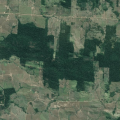 The Glasgow Declaration on Forests is far from “unprecedented”. It’s just another in a long line of meaningless UN declarations
The Glasgow Declaration on Forests is far from “unprecedented”. It’s just another in a long line of meaningless UN declarations
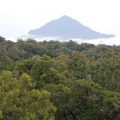 Tropical forests in Africa’s mountains store more carbon than previously thought—but are disappearing fast
Tropical forests in Africa’s mountains store more carbon than previously thought—but are disappearing fast
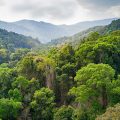 The Rush for Carbon Concessions: More Land Theft and Deforestation
The Rush for Carbon Concessions: More Land Theft and Deforestation
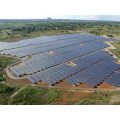 Solar energy capacity to reach 200MW next year
Solar energy capacity to reach 200MW next year
You may like
-


Africa warming faster than rest of world: IPCC Sixth Assessment Report
-
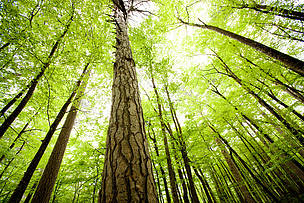

WWF launches new impact platform that engages businesses and investors to deliver on sustainability ambitions
-
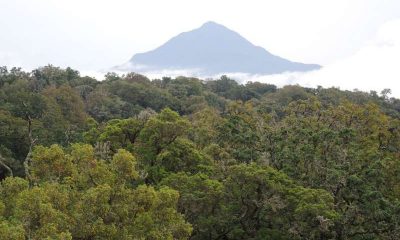

Tropical forests in Africa’s mountains store more carbon than previously thought—but are disappearing fast
-
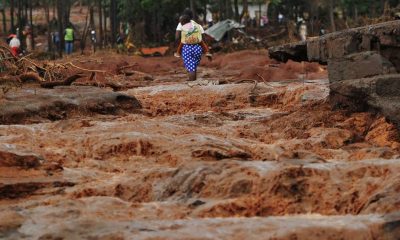

Insights for African countries from the latest climate change projections
-
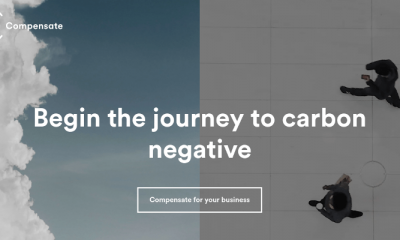

Finnish carbon offsetting firm Compensate finds 91% of carbon offset projects fail its evaluation process. Of course the remaining 9% will also not help address the climate crisis
-
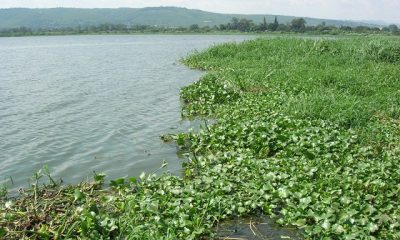

Water hyacinth threatens Lake Victoria’s ecosystem
SPECIAL REPORTS AND PROJECTS
Top 10 agribusiness giants: corporate concentration in food & farming in 2025
Published
2 months agoon
August 28, 2025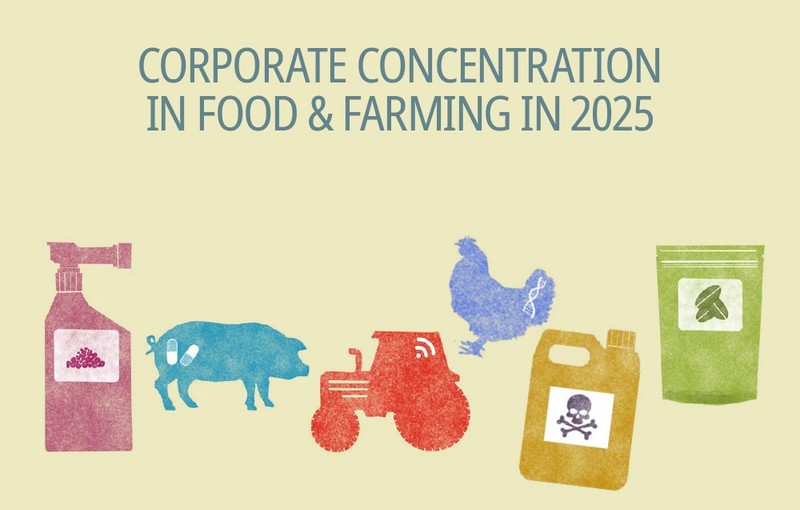

|
Ranking
|
Company (Headquarters)
|
Sales in 2023
(US$ millions)
|
% Global market share 19
|
|
1
|
Bayer (Germany)20
|
11,613
|
23
|
|
2
|
Corteva (US)21
|
9,472
|
19
|
|
3
|
Syngenta (China/Switzerland)22
|
4,751
|
10
|
|
4
|
BASF (Germany)23
|
2,122
|
4
|
|
Total top 4
|
27,958
|
56
|
|
|
5
|
Vilmorin & Cie (Groupe Limagrain) (France)24
|
1,984
|
4
|
|
6
|
KWS (Germany)25
|
1,815
|
4
|
|
7
|
DLF Seeds (Denmark)26
|
838
|
2
|
|
8
|
Sakata Seeds (Japan)27
|
649
|
1
|
|
9
|
Kaneko Seeds (Japan)28
|
451
|
0.9
|
|
Total top 9
|
33,695
|
67
|
|
|
Total world market29
|
50,000
|
100%
|
|
Ranking
|
Company (Headquarters)
|
Sales in 2023
(US$ millions)
|
% Global market share
|
|
1
|
Syngenta (China/Switzerland)43
|
20,066
|
25
|
|
2
|
Bayer (Germany)44
|
11,860
|
15
|
|
3
|
BASF (Germany)45
|
8,793
|
11
|
|
4
|
Corteva (US)46
|
7,754
|
10
|
|
Total top 4
|
48,472
|
61
|
|
|
5
|
UPL (India)47
|
5,925
|
8
|
|
6
|
FMC (Germany)48
|
4,487
|
6
|
|
7
|
Sumitomo (Japan)49
|
3,824
|
5
|
|
8
|
Nufarm (Australia)50
|
2,056
|
3
|
|
9
|
Rainbow Agro (China)51
|
1,623
|
2
|
|
10
|
Jiangsu Yangnong Chemical Co., Ltd. (China)52
|
1,595
|
2
|
|
Total top 10
|
67,982
|
86
|
|
|
Total world market53
|
79,000
|
100
|
|
Ranking
|
Company (Headquarters)
|
Sales in 2023
(US$ millions)
|
% Global market share
|
|
1
|
Nutrien (Canada)72
|
15,673
|
8
|
|
2
|
The Mosaic Company (US)73
|
12,782
|
7
|
|
3
|
Yara (Norway)74
|
11,688
|
6
|
|
4
|
CF Industries Holdings, Inc, (US)75
|
6,631
|
3
|
|
Total top 4
|
46,774
|
24
|
|
|
5
|
ICL Group Ltd. (Israel)76
|
6,294
|
3
|
|
6
|
OCP (Morocco)77
|
5,967
|
3
|
|
7
|
PhosAgro (Russia)78
|
4,989
|
3
|
|
8
|
MCC EuroChem Joint Stock Company (EuroChem) (Switzerland/Russia)79
|
4,298
|
2
|
|
9
|
OCI (Netherlands)80
|
4,188
|
2
|
|
10
|
Uralkali (Russia)81
|
3,497
|
2
|
|
Total top 10
|
76,007
|
39
|
|
|
Total world market82
|
196,000
|
100
|
|
Ranking
|
Company (Headquarters)
|
Sales in 2023
(US$ millions)
|
% Global market share
|
|
1
|
Deere and Co. (US)89
|
26,790
|
15
|
|
2
|
CNH Industrial (UK/Netherlands)90
|
18,148
|
10
|
|
4
|
AGCO (US)91
|
14,412
|
8
|
|
3
|
Kubota (Japan)92
|
14,233
|
8
|
|
Total top 4
|
73,583
|
43
|
|
|
5
|
CLAAS (Germany)93
|
6,561
|
4
|
|
6
|
Mahindra and Mahindra (India)94
|
3,156
|
2
|
|
7
|
SDF Group (Italy)95
|
2,197
|
1
|
|
8
|
Kuhn Group (Switzerland)96
|
1,583
|
0.9
|
|
9
|
YTO Group (China)97
|
1,493
|
0.9
|
|
10
|
Iseki Group (Japan)98
|
1,057
|
0.6
|
|
Total top 10
|
89,629
|
52
|
|
|
Total world market99
|
173,000
|
100
|
|
Ranking
|
Company (Headquarters)
|
Sales in 2023
(US$ millions)
|
% Global market share
|
|
1
|
Zoetis (US)115
|
8,544
|
18
|
|
2
|
Merck & Co (MSD) (US)116
|
5,625
|
12
|
|
3
|
Boehringer Ingelheim Animal Health (Germany)117
|
5,100
|
11
|
|
4
|
Elanco (US)118
|
4,417
|
9
|
|
Total top 4
|
23,686
|
49
|
|
|
5
|
Idexx Laboratories (US)119
|
3,474
|
7
|
|
6
|
Ceva Santé Animale (France)120
|
1,752
|
4
|
|
7
|
Virbac (France)121
|
1,348
|
3
|
|
8
|
Phibro Animal Health Corporation (US)122
|
978
|
2
|
|
9
|
Dechra (UK)123
|
917
|
2
|
|
10
|
Vetoquinol (France)124
|
572
|
1
|
|
Total top 10
|
32,727
|
68
|
|
|
Total world market125
|
48,000
|
100
|
 The genetic material used in the industrial production of meat, dairy and aquaculture is supplied by a small number of relatively unknown companies that are mostly privately owned. As detailed financial data is not publicly available for most of these companies, it is difficult to determine companies’ market shares and even the value of the global market. However, it was possible to arrive at some estimates for chicken, which tops global meat production (narrowly exceeding pigs).126
The genetic material used in the industrial production of meat, dairy and aquaculture is supplied by a small number of relatively unknown companies that are mostly privately owned. As detailed financial data is not publicly available for most of these companies, it is difficult to determine companies’ market shares and even the value of the global market. However, it was possible to arrive at some estimates for chicken, which tops global meat production (narrowly exceeding pigs).126Related posts:
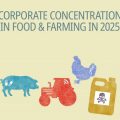
 CORPORATE AGRIBUSINESS GIANTS SWIM IN WEALTH AS MORE POOR PEOPLE GO HUNGRY AMID THE BITING COVID PANDEMIC.
CORPORATE AGRIBUSINESS GIANTS SWIM IN WEALTH AS MORE POOR PEOPLE GO HUNGRY AMID THE BITING COVID PANDEMIC.
 A corporate cartel fertilises food inflation
A corporate cartel fertilises food inflation
 The United Nations Food Systems Summit is a corporate food summit —not a “people’s” food summit
The United Nations Food Systems Summit is a corporate food summit —not a “people’s” food summit
 Food inflation: The math doesn’t add up without factoring in corporate power
Food inflation: The math doesn’t add up without factoring in corporate power
SPECIAL REPORTS AND PROJECTS
Maasai demand Volkswagen pull out of carbon offset scheme on their lands
Published
3 months agoon
July 24, 2025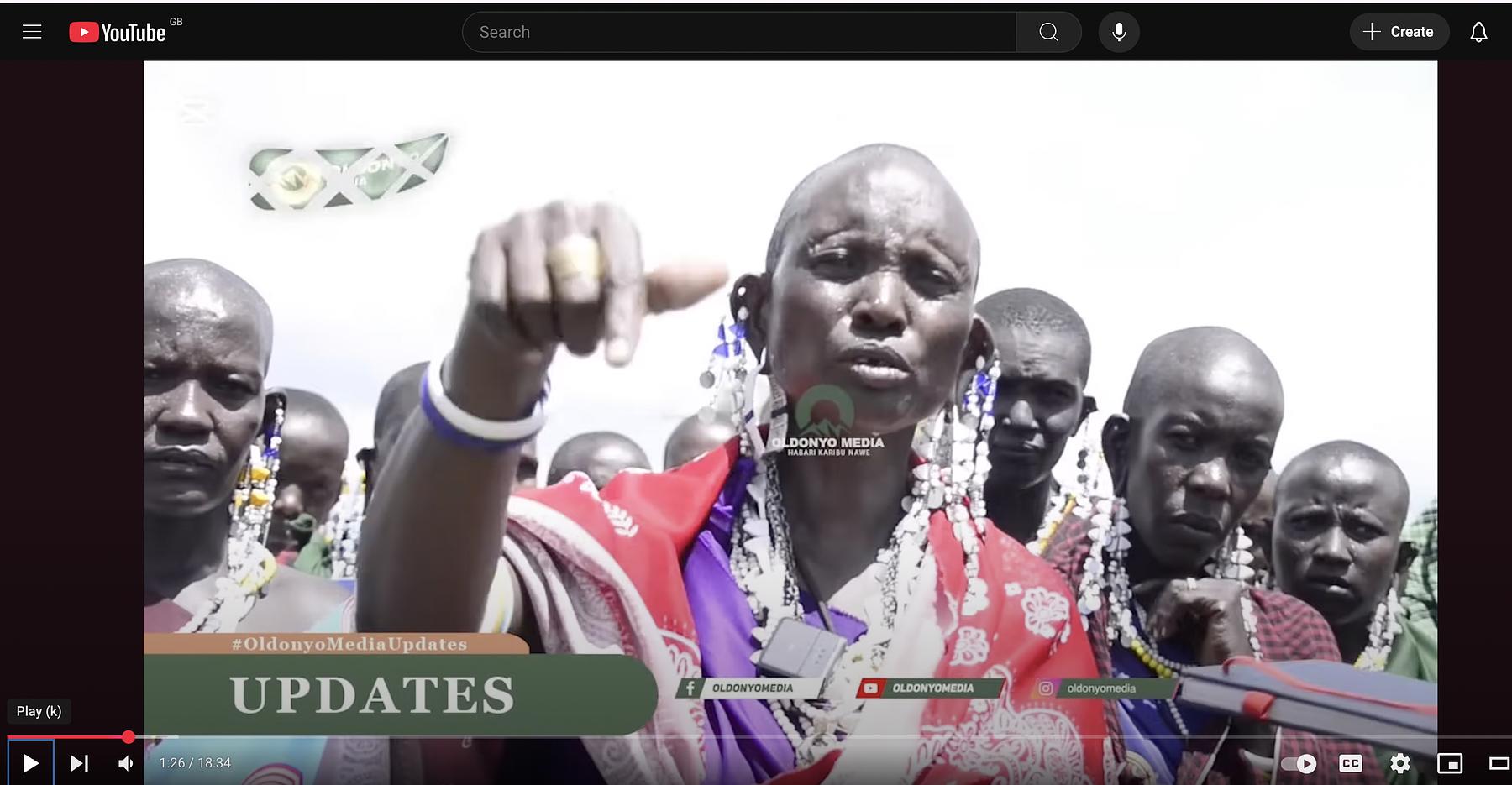
Maasai Indigenous people in Tanzania have called on Volkswagen (VW) to withdraw from a controversial carbon credits scheme which violates their rights and threatens to wreck their livelihoods.
In a statement, the Maasai International Solidarity Alliance (MISA) denounced the “loss of control or use” of vital Maasai grazing grounds, and accused VW of making “false and misleading claims” about Maasai participation in decision making about the project.
Many Maasai pastoralists have already been evicted from large parts of their grazing lands for national parks and game reserves, with highly lucrative tourist businesses operating in them. Now a major new carbon-credit generating project by Volkswagen ClimatePartner (VWCP) and US-based carbon offset company Soils for the Future Tanzania is taking control of large parts of their remaining lands, and threatening livelihoods by upending long-standing Maasai grazing practices.
The Maasai have not given their free, prior and informed consent for the project. They fear it will restrict their access to crucial refuge areas in times of drought, and threaten their food security.
Ngisha Sinyok, a Maasai community member from Eluai village, which is struggling to withdraw from the project, told Survival: “Our livestock is going to be depleted. We will end up not having a single cow.” Asked about VW’s involvement in the project, he replied, “It is not a solution to climate change. It is just a business for people to make money using our environment. It has nothing to do with climate change.”
Another Maasai man, who wished to remain anonymous for fear of reprisals, said: “They use their money to control us.” A third said: “Maasailand never had a price tag. In Maasailand, there is no privatization. Our land is communal.”
Survival International’s Director of Research and Advocacy, Fiona Watson, said today: “The carbon project that Volkswagen supports violates the Maasai’s rights and will be disastrous for their lives, all so the company can carry on polluting and greenwash its image. It takes away the Maasai’s control over their own lands and relies on the false and colonial assumption that they are destroying their lands — which is not supported by evidence.
“The Maasai have been grazing cattle on the plains of East Africa since time immemorial. They know the land and how to manage it better than carbon project developers seeking to make millions from their lands.”
VW’s investment in the project, whose official name is the “Longido and Monduli Rangelands Carbon Project”, is believed to run to several million dollars, and has contributed to corruption and tensions in northern Tanzania, according to MISA’s report on the project.
An adjacent project in southern Kenya, also run by Soils for the Future, is beset with similar problems, and has already sparked resistance from local communities.
Survival International’s Blood Carbon report revealed that the whole basis for these “soil carbon” projects is flawed, and unsupported by evidence. Survival documented similar problems with the highly controversial Northern Kenya Grasslands Carbon Project. That project suffered a blow in a Kenyan court and was suspended and put under review by Verra, the carbon credit verification agency, for an unprecedented second time.
Source: Survival International
Related posts:

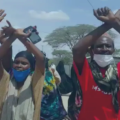 Kenya: Court halts flagship carbon offset project used by Meta, Netflix and British Airways over unlawfully acquiring community land without consent
Kenya: Court halts flagship carbon offset project used by Meta, Netflix and British Airways over unlawfully acquiring community land without consent
 East Africa poised to monitor carbon emission
East Africa poised to monitor carbon emission
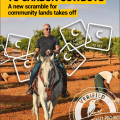 Carbon offset projects exacerbate land grabbing and undermine small farmers’ independence – GRAIN report
Carbon offset projects exacerbate land grabbing and undermine small farmers’ independence – GRAIN report
SPECIAL REPORTS AND PROJECTS
Seizing the Jubilee moment: Cancel the debt to unlock Africa’s clean energy future
Published
4 months agoon
July 12, 2025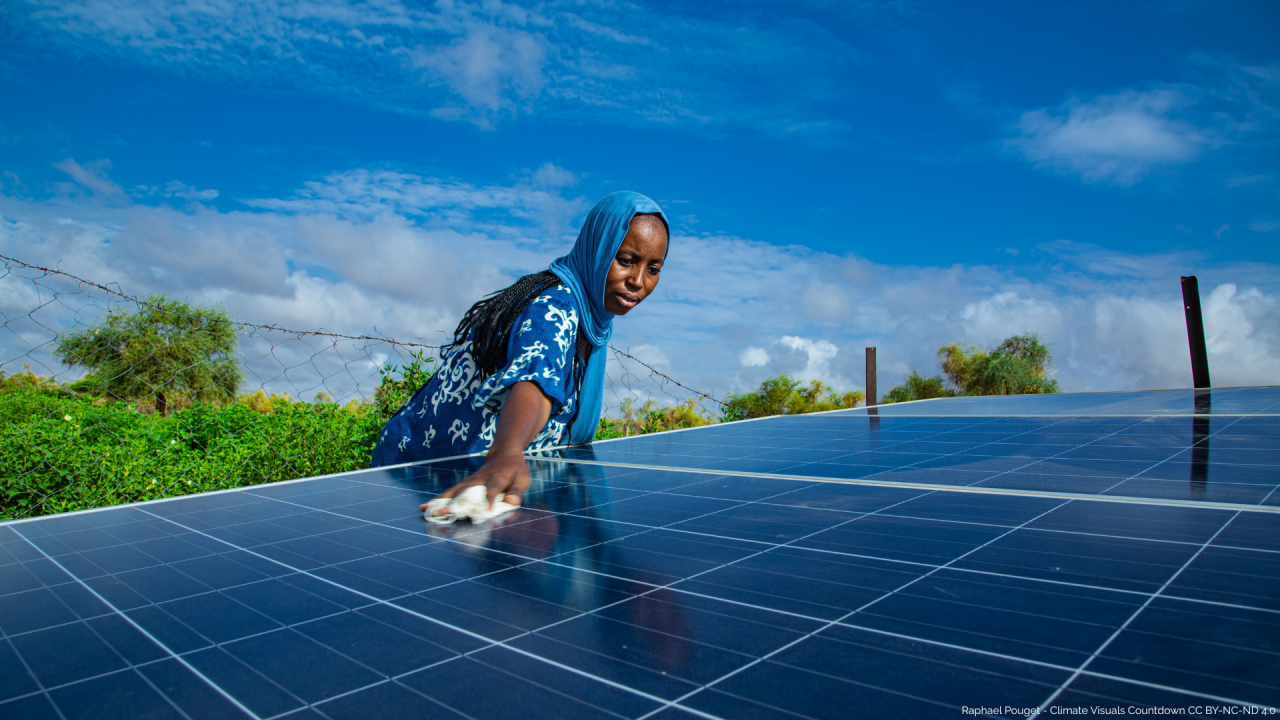
Africa has the resources and the vision for a just energy transition, but it is trapped in a financial system structured to take more than it gives. In this blog, we outline how debt burdens and climate impacts are holding the continent back, and looks at the role of institutions that shape the global financial order, like the World Bank, African Development Bank and IMF. As these institutions and governments meet in Seville for FfD4, we urge them to heed people’s calls for reform: cancel the debt, redistribute the wealth, and fund the just transition. — By Rajneesh Bhuee and Lola Allen
With 60% of the world’s best solar energy resources and 70% of the cobalt essential for electric vehicle batteries, the African continent has everything it needs to power its development and become a global reference point for sustainable energy production. That potential, however, remains largely untapped; Africa receives just 2% of global renewable energy investment. As the UNCTAD Secretary-General Rebeca Grynspan warns, too many countries are forced to “default on their development to avoid defaulting on their debt.”
The cost of servicing unsustainable debts, layered with new loan-based climate and development finance, leaves governments with little fiscal space to invest in clean energy, health or education. In 2022 alone, African countries spent more than $100 billion on debt servicing, over twice what they spent on health or education. Add to this the $90 billion lost annually to illicit financial flows, and the reality is stark: more money leaves the continent through financial leakages (also including unfair trade and extractive investment) than comes in through productive, equitable and development-oriented finance.
These are not isolated problems. They reflect a financial system that has been built to serve global markets rather than people. Between 2020 and 2025, four African countries defaulted on their external debts, that is, they failed to make scheduled repayments to creditors like the International Monetary Fund or bondholders, triggering fiscal crises and, in several cases, IMF interventions tied to austerity measures. Pope Francis’ Jubilee Report (2025) and hundreds of civil society groups argue that these defaults reflect the deeper crisis of unsustainable debt. Meanwhile, 24 more African countries are now in or near debt distress. None have successfully restructured their debts under the G20 Common Framework, a mechanism launched in 2020 to facilitate debt relief among public and private creditors. The Framework has been widely criticised for being slow, opaque and ineffective. According to Eurodad, without urgent systemic reforms, up to 47 Global South countries, home to over 1.1 billion people, face insolvency risks within five years if they attempt to meet climate and development goals.
How debt undermines the just energy transition
Debt has become both a driver and a symptom of climate injustice. Countries that did the least to cause the climate crisis now pay the highest price, twice over. First, they suffer the impacts. Second, they must borrow to rebuild.
This is happening just as concessional finance disappears. The US has withdrawn from the African Development Fund’s concessional window (worth $550m), yet maintains influence over private-sector lending. It has also opted out of the UN Financing for Development Conference (FfD4), a historic opportunity to confront the injustice of our financial system. Meanwhile, European governments, though now celebrating themselves as defenders of multilateralism, played a key role in weakening the outcome of FfD4, slashing aid budgets, redirecting funds toward militarisation, and systematically blocking proposals for a UN-led sovereign debt workout mechanism. With rising insecurity and geopolitical tensions, these actions send a troubling signal: at a moment when global cooperation is urgently needed, many Global North countries are stepping back from efforts to fix the very system that is preventing climate justice and clean energy for much of the Global South.
A role for the AfDB?
The African Development Bank (AfDB), under incoming president Sidi Ould Tah , has made progressive commitments of $10 billion to climate-resilient infrastructure and $4 billion to clean cooking. Between 2022 and 2024, one in five (20%) of its energy dollars were grants, far exceeding The World Bank ‘s 10% and the Asian Development Bank (ADB) ‘s 3.8%. The AfDB has also backed systemic reform: for example, calling for Special Drawing Rights (SDR) redistribution, launching an African Financial Stability Mechanism that could save up to $20 billion in debt servicing, and consistently advocating for fairer lending terms.
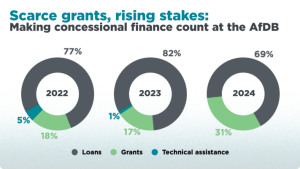
Yet, even progressive leadership struggles within a broken system. Recourse’s recent research shows that AfDB energy finance dropped 67% in 2024, from $992.7 million to just $329.6 million. Of this, a staggering 73% went to large-scale infrastructure like mega hydro dams and export-focused transmission lines, ‘false solutions’ that bypass the energy-poor and displace communities. Meanwhile, support for locally-appropriate, decentralised renewable energy systems such as mini-grids, solar appliances, and clean cookstoves plummeted by over 90%, from $694.5 million to just $61 million, with only five of 13 projects directly addressing energy access in 2024.
Africa received just 2.8% of global climate finance in 2021–22, and what is labelled as “climate finance” is often little more than a Trojan horse: resource-backed loans, debt-for-nature swaps, and blended finance instruments that shift risk to the public while offering little real benefit to local communities. These mechanisms, promoted as “innovative” or “green”, often entrench financial dependency and fail to deliver meaningful change for energy-poor or climate-vulnerable groups.
Meanwhile, initiatives that could build green industry and renewable capacity across Africa are falling short in both scale and speed. Flagship projects, such as the EU’s Global Gateway, have failed to drive green industrialisation in Africa, and carbon markets continue to delay real emissions reductions, subsidise fossil fuel interests, and entrench elite control over land and resources.
Mission 300: Ambition or another missed opportunity?
In this constrained context, the AfDB and World Bank launched Mission 300, an ambitious plan to connect 300 million Africans to electricity by 2030. Pragmatic goals like electrification are crucial, but the story beneath the surface of Mission 300 raises concern. Far from serving households, many projects under the initiative appear more aligned with export markets and large-scale energy users, echoing decades of infrastructure that bypasses those most in need.
Mission 300 can still be transformative, but only if it centres people, not profits. Energy access must begin with those who need it most: women and youth, especially in rural communities. Across Africa, many women cook over open fires, walk hours to gather fuel, and care for families in homes without light or clean air. This is not just an inconvenience, it is structural violence and policy failure.
Yet most energy finance still flows to centralised grids, mega-projects, and sometimes fossil gas (misleadingly called a “transition fuel”). These do little to address energy poverty. Locally appropriate decentralised renewable energy solutions, solar-powered appliances, clean cookstoves, and mini-grids can deliver faster, cheaper, and more equitable impact. Mission 300 must invest in such solutions, without adding to existing debt problems. It should support national policy design, for example, by ensuring that energy policy is responsive to women’s needs, making use of gender-disaggregated data and community consultation.
The Jubilee: A year for action
In a year already marked as a Jubilee moment, African leaders have demanded reform: including a sovereign debt workout mechanism and a UN Tax Convention to end illicit financial flows. Yet as AFRODAD has documented, these demands were blocked at the FfD4 negotiations by wealthy nations—notably the EU and UK—even as climate impacts grow and fiscal space shrinks.
This is not just about finance. It is about reclaiming sovereignty. The incoming AfDB president and all the multilateral development banks face a choice: continue financing extractive, large-scale projects that serve foreign interests, or invest in decentralised, gender-responsive, pro-people solutions that shift power and ownership.
Africa has the resources. What it needs is fiscal space, public-led finance, and global rules that prioritise people and planet over profit. The Jubilee call is clear: cancel the debt, redistribute the wealth, and fund the just transition.
Source: Recourse through LinkedIn Account Recourse.
Related posts:

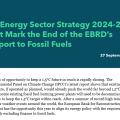 Statement: The Energy Sector Strategy 2024–2028 Must Mark the End of the EBRD’s Support to Fossil Fuels
Statement: The Energy Sector Strategy 2024–2028 Must Mark the End of the EBRD’s Support to Fossil Fuels
 African Development Bank decides not to fund Kenya coal project
African Development Bank decides not to fund Kenya coal project
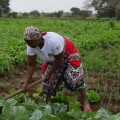 Africa must unlock the power of its women to save climate change
Africa must unlock the power of its women to save climate change
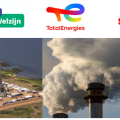 PFZW scraps funding from Total and others for failure to transition into a cleaner energy mix.
PFZW scraps funding from Total and others for failure to transition into a cleaner energy mix.

Land Grabbing “matter of growing concern” in Uganda, Catholic Archbishop Laments, Appeals for Intervention

REC25 & EXPO Ends with a call on Uganda to balance conservation and livelihood

StopEACOP Coalition warns TotalEnergies and CNOOC investors of escalating ‘financial and reputational’ Risks

12 anti-Eacop activists decry delayed justice after spending 100 days on remand

The 4th African Forum on Business and Human Rights: The rapidly escalating investment in Africa is urgently eroding environmental conservation and disregarding the dignity, the land, and human rights of the African people.

Oil palm tree growing in Uganda: The National Oil Palm Project is threatening to evict hundreds of smallholder farmers to expand its operations.

StopEACOP Coalition warns TotalEnergies and CNOOC investors of escalating ‘financial and reputational’ Risks

The 4th African Forum on Business and Human Rights: The African continent is lagging, with only a few member states having adopted the National Action Plan (NAP) on Business and Human Rights.

Innovative Finance from Canada projects positive impact on local communities.
Over 5000 Indigenous Communities evicted in Kiryandongo District
Petition To Land Inquiry Commission Over Human Rights In Kiryandongo District
Invisible victims of Uganda Land Grabs
Resource Center
- REPARATORY AND CLIMATE JUSTICE MUST BE AT THE CORE OF COP30, SAY GLOBAL LEADERS AND MOVEMENTS
- LAND GRABS AT GUNPOINT REPORT IN KIRYANDONGO DISTRICT
- THOSE OIL LIARS! THEY DESTROYED MY BUSINESS!
- RESEARCH BRIEF -TOURISM POTENTIAL OF GREATER MASAKA -MARCH 2025
- The Mouila Declaration of the Informal Alliance against the Expansion of Industrial Monocultures
- FORCED LAND EVICTIONS IN UGANDA TRENDS RIGHTS OF DEFENDERS IMPACT AND CALL FOR ACTION
- 12 KEY DEMANDS FROM CSOS TO WORLD LEADERS AT THE OPENING OF COP16 IN SAUDI ARABIA
- PRESENDIANTIAL DIRECTIVE BANNING ALL LAND EVICTIONS IN UGANDA
Legal Framework
READ BY CATEGORY
Newsletter
Trending
-
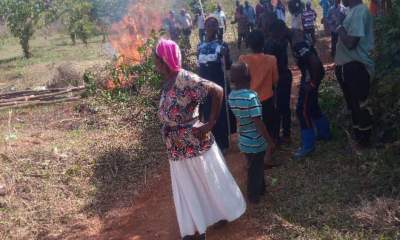
 MEDIA FOR CHANGE NETWORK2 weeks ago
MEDIA FOR CHANGE NETWORK2 weeks agoOil palm tree growing in Uganda: The National Oil Palm Project is threatening to evict hundreds of smallholder farmers to expand its operations.
-
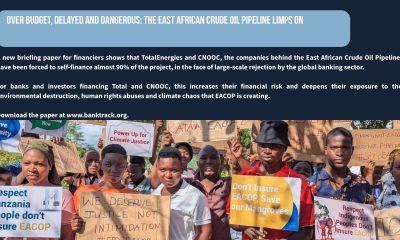
 MEDIA FOR CHANGE NETWORK4 days ago
MEDIA FOR CHANGE NETWORK4 days agoStopEACOP Coalition warns TotalEnergies and CNOOC investors of escalating ‘financial and reputational’ Risks
-
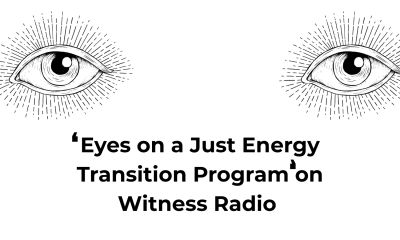
 MEDIA FOR CHANGE NETWORK2 weeks ago
MEDIA FOR CHANGE NETWORK2 weeks agoNew! The Eyes on a Just Energy Transition in Africa Program is now live on Witness Radio.
-

 MEDIA FOR CHANGE NETWORK1 week ago
MEDIA FOR CHANGE NETWORK1 week agoKnow Your Land rights and environmental protection laws: a case of a refreshed radio program transferring legal knowledge to local and indigenous communities to protect their land and the environment at Witness Radio.
-
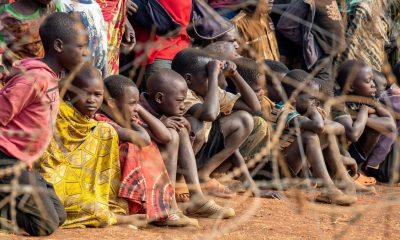
 NGO WORK7 days ago
NGO WORK7 days agoFailed US-Brokered “Peace” Deal Was Never About Peace in DRC
-
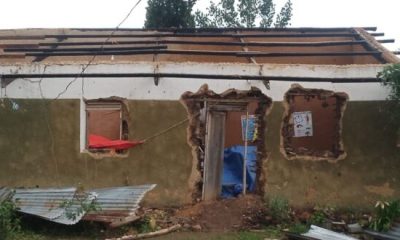
 MEDIA FOR CHANGE NETWORK2 weeks ago
MEDIA FOR CHANGE NETWORK2 weeks agoRDCs, Local Leaders Accused of Grabbing 70-Acre Ancestral Land
-
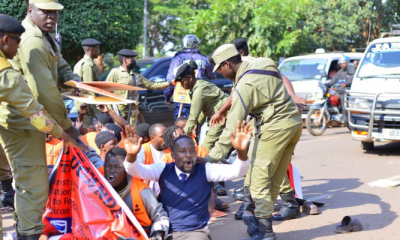
 MEDIA FOR CHANGE NETWORK5 days ago
MEDIA FOR CHANGE NETWORK5 days ago12 anti-Eacop activists decry delayed justice after spending 100 days on remand
-
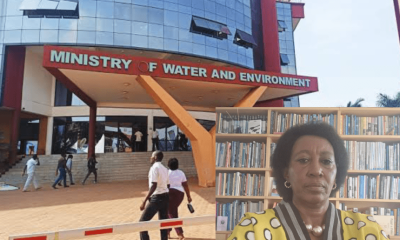
 MEDIA FOR CHANGE NETWORK6 days ago
MEDIA FOR CHANGE NETWORK6 days ago‘They Stole Our Ancestors’: Ministry of Water, RDCs Accused of Land Grabbing and Grave Exhumation in Kanungu


